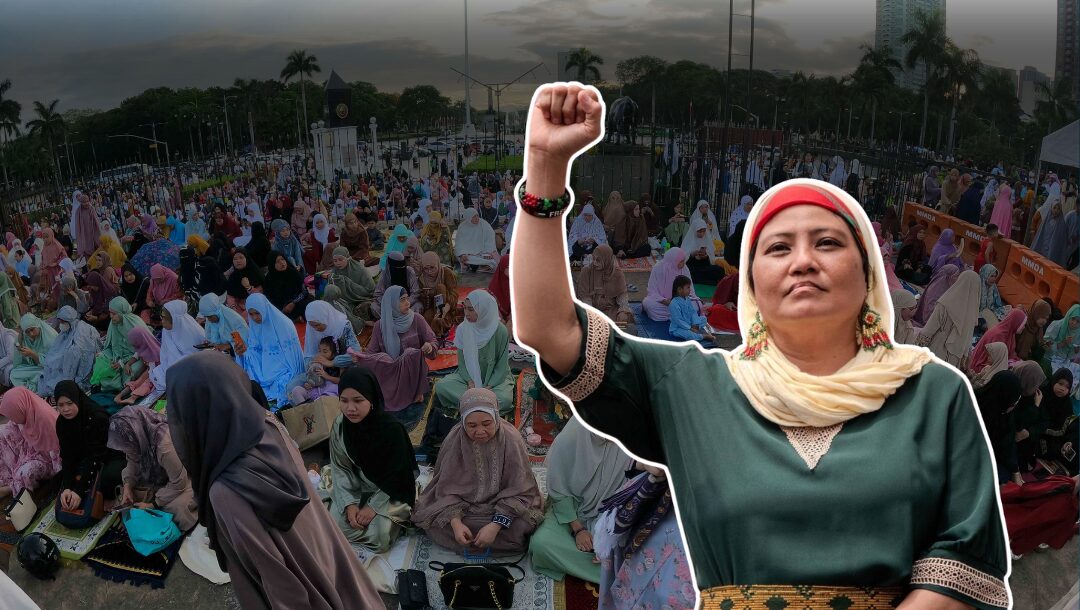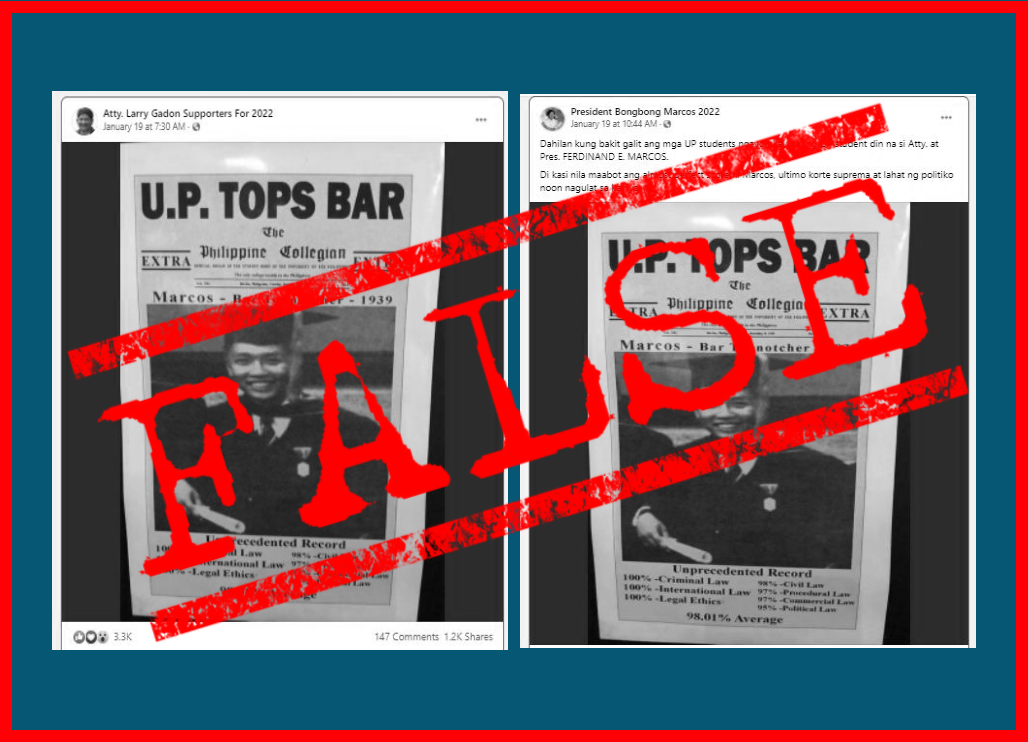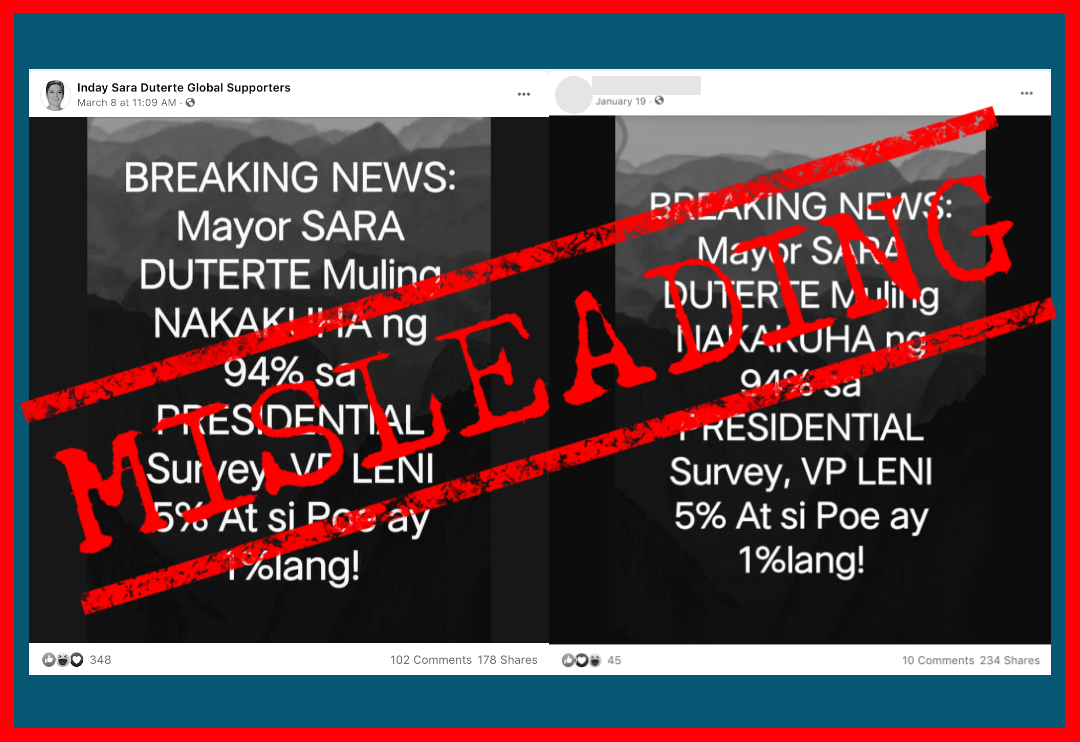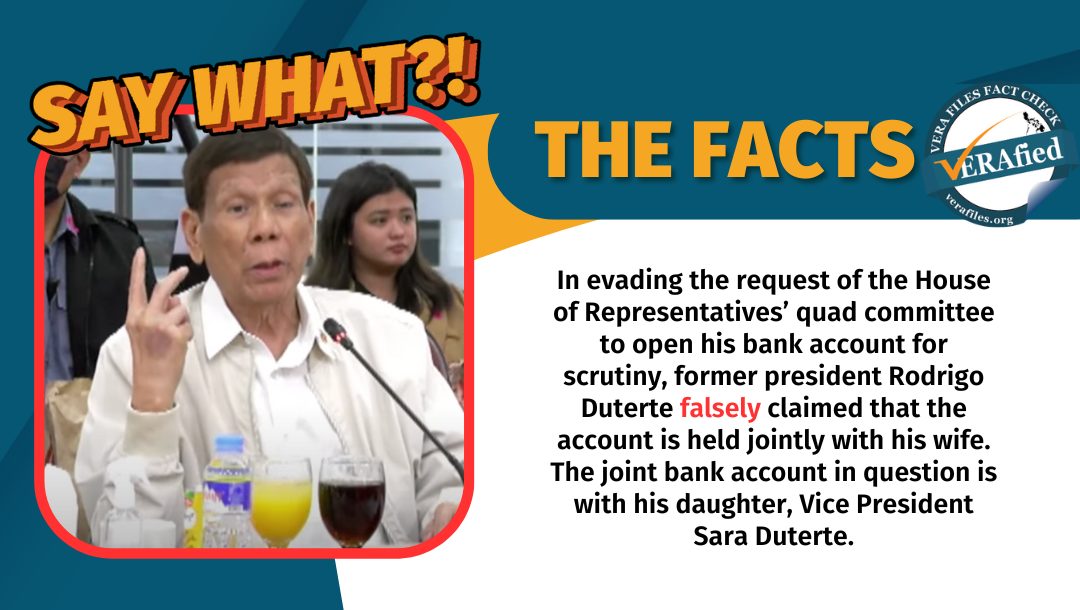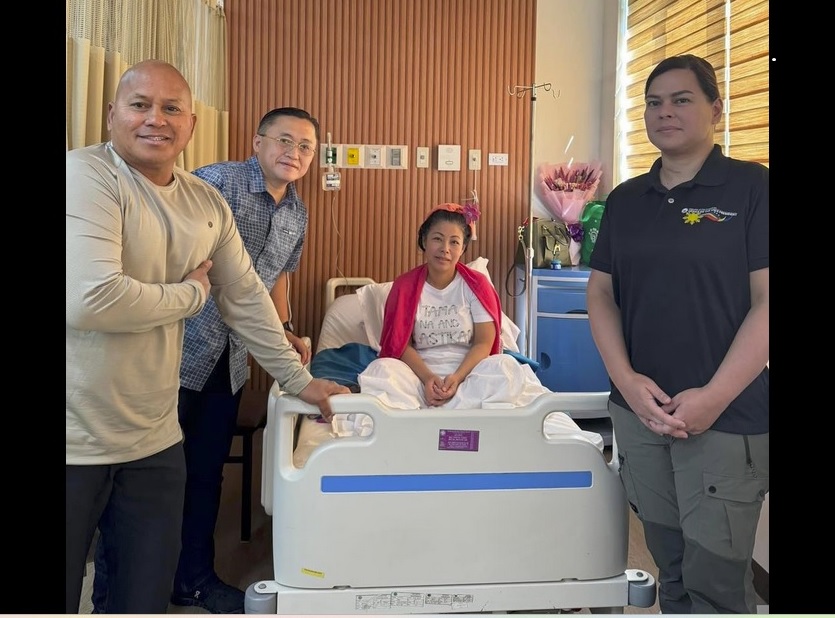The issues facing marginalized sectors, in particular the Moros, have been overshadowed by the war between the Marcos and Duterte camps ahead of the May 12 midterm election, Makabayan senatorial candidate Amirah “Mek” Lidasan declared.
“Ang maganda sana sa eleksyon na ito ay ‘yung mga isyu ng mga kapatid nating Moro at saka ng mga katutubo ay nasa sentro. Ang problem lang, wala [sa mainstream media] ang kumukuha ng mga isyu dahil sa dalawang nagbabanggaan,” Lidasan, co-chair of the Sandugo – Movement of Moro and Indigenous Peoples for Self-Determination, said.
The Moro representative running under the Makabayan partylist coalition is referring to President Ferdinand Marcos Jr. and Vice President Sara Duterte, whose relations have soured over multiple issues, the last straw being the arrest of former president Rodrigo Duterte and his turnover to the International Criminal Court in The Hague on charges of crimes against humanity.
Lidasan, a member of the Bayan Muna party since 2000, once ran as the first nominee of the Moro advocacy group Suara Bangsamoro party-list in 2004. She hails from the Iranon Tribe in Maguindanao. A journalism graduate from the University of the Philippines, the full-time activist and NGO worker is single, and volunteered for advocacy groups Karapatan and Kilusang Mayo Uno as a young activist.
She cited as an example of a Moro grievance the weaponization of the Anti-Terrorism Act of 2020. She said several Moro and indigenous leaders have faced trumped-up charges of terrorist financing and other criminal offenses such as murder and arson.
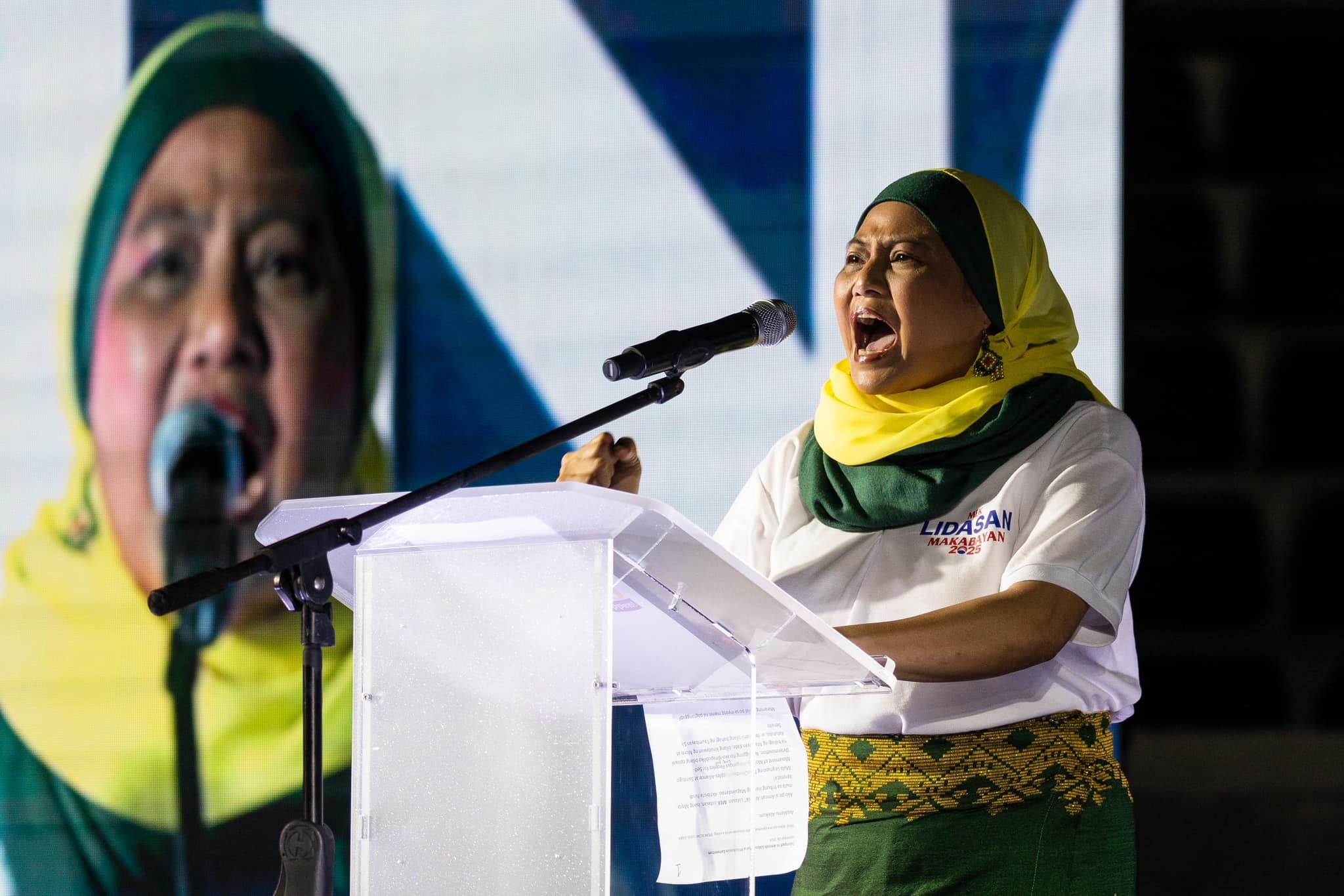
Seventeen of the 40 state-related killings last March occurred in Mindanao, based on a report by the UP Third World Studies Center. In one case, the military killed supposed members of the terrorist group Dawlah Islamiya, also formerly known as the Maute Group, but this was disputed by a relative of one of the victims, according to the report.
(Read Mindanao continues to be volatile despite ‘insurgency-free’ areas)
“Sa away ni Duterte at saka ni BBM [Marcos], hindi ‘yan mababanggit. Kasi ‘yan ang commonalities nila. Human rights violators sila pareho. Tagapagtaguyod sila ng red-tagging at terrorist-tagging. Marami silang victims ng human rights violations,” she told VERA Files in an interview.
Lidasan noted the two camps are more focused on protecting their own personal interests than diligently doing their jobs as elected leaders. “They do not address poverty, they do not address ‘yung pagtaas ng presyo, they do not address ‘yung kalagayan ng mamamayan. Nagbabatuhan lang sila ng putik sa isa’t isa,” a frustrated Lidasan said.
The needs of the common people must be prioritized rather than engage in “pointless bickering,” she added.
Victims twice over
Lidasan noted that Marawi, the capital of Lanao del Sur, is still in ruins despite the show of “grandeur” of the government’s efforts in rehabilitating the city years after it became a battleground of the military and Dawlah Islamiya, an Islamic State-linked group, in 2017.
“Gusto ng mga tao na ipakita na ganito ang kalagayan nila, na hindi sila makabalik. Despite na mayroon nang [Marawi Siege Victims Compensation Act of 2022], binabarat sila at hindi rin naman sila pinapayagan na magpatayo ng bahay dahil sinasabi ay public land daw ‘yon. Masakit ang loob ng mga kababayan natin,” she lamented.
Last year, the youth group Hirang ng Hiraya sounded the alarm when 5,000 families displaced by the Marawi battle faced eviction from their temporary shelters after their contracts expire despite the government’s promises of providing them long-term housing solutions.
In March this year, hundreds of people protested outside the office of the Marawi Compensation Board because of delays in the release of benefits for the victims’ families and the exclusion of some people from the list of eligible beneficiaries of the program.
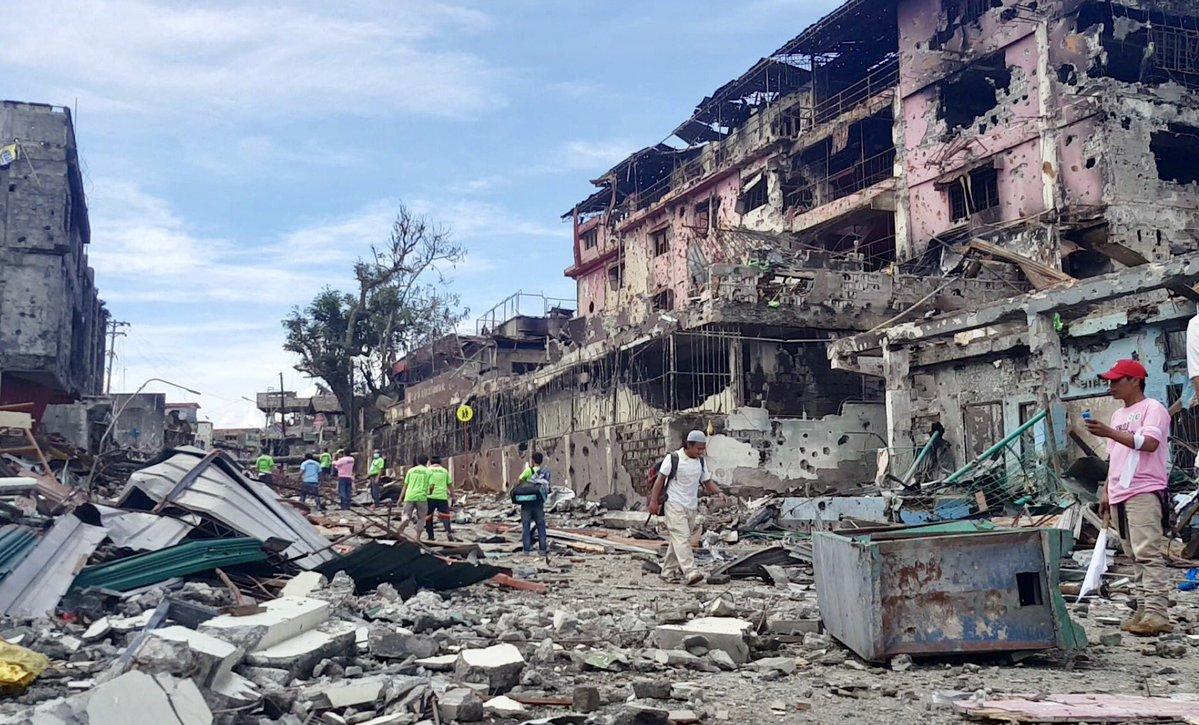
No homes, no jobs
Abdul Karim Dipatuan, a 56-year old Marawi native who runs a mall kiosk in Metro Manila, was not directly affected by the deadly siege as he was already living in Taguig City after decades of working overseas in Saudi Arabia.
But his relatives were not as fortunate and many of them moved to other parts of the country, including Davao and Cagayan, after losing their homes and their livelihood in the war.
“Marami akong kamag-anak doon sa Marawi. Simula noong nagkagulo na, nawala na rin ang mga hinahanap-buhay. Ang sabi sa akin ay parang napabayaan na raw sila sa Marawi,” he said.
While some victims have received compensation for their destroyed homes and lost income, Dipatuan said many have yet to get theirs because the local government plays favorites.
“Alam mo naman, palakasan ‘yan. ‘Pag malakas ang kamag-anak – malapit kay ganito – ganoon ang nangyayari. Matatanggap nila agad ‘yung inaasahan nila at may pambayad o pamuhunan na sila. ‘Yung iba, dumaraan sa kahirapan dahil walang makapitan,” he said.
Dipatuan carefully minced words in describing the government’s sub-par response in the rehabilitation of Marawi, but expressed hope that the country’s leaders would stop thinking only of themselves in addressing problems. They should make decisions that will consider the well-being of the common people, regardless of political or religious beliefs, he stressed.
“Kung anong ikabubuti at ikagaganda ng programa mo, gawin mo para sa kabutihan ng karamihan. Hindi ‘yung kapakanan lang ng isang tao, dalawang tao o tatlong tao,” he said.
Empowering the Muslim community
There is a lot more the government can do to empower the Moro community, according to Dr. Jamel Cayamodin, professor at the Mindanao State University in Marawi.
“We should have laws that will strengthen and expand the Shari’ah justice system or laws that will expand and strengthen the madrasah education. Because we are neglecting these institutions. And in fact, some are accusing these institutions of producing radicals when that’s not the case,” he said.
Cayamodin said empowering these institutions will help achieve peace and security and foster a harmonious co-existence between Muslims and non-Muslims.
The Department of Education has the Madrasah Education Program – an initiative designed to provide culturally-appropriate education for Muslim learners – but Cayamodin said it is inadequate and may be abolished any time.
Moro representation in Senate
Despite the significant population of Moros, proper representation for them is sorely lacking in the Senate under the Marcos-Duterte administration.
Since the 1987 Constitution was ratified, there have only been two Muslim candidates elected in the upper chamber: Mamintal Tamano and Santanina Rasul. Since 1995, the Moro community has had no voice in the Senate.
Currently, there is Sen. Robin Padilla, a Muslim convert who is not considered as their representative by the entire Moro community, including Cayamodin and Lidasan.
Despite making up approximately 6.4% of the national population based on the 2020 census of the Philippine Statistics Authority (or 11%, according to the estimate of the National Commission on Muslim Filipinos), the Moro community has no collective voting behavior unlike religious voting blocs such as the Iglesia ni Cristo and the Kingdom of Jesus Christ.
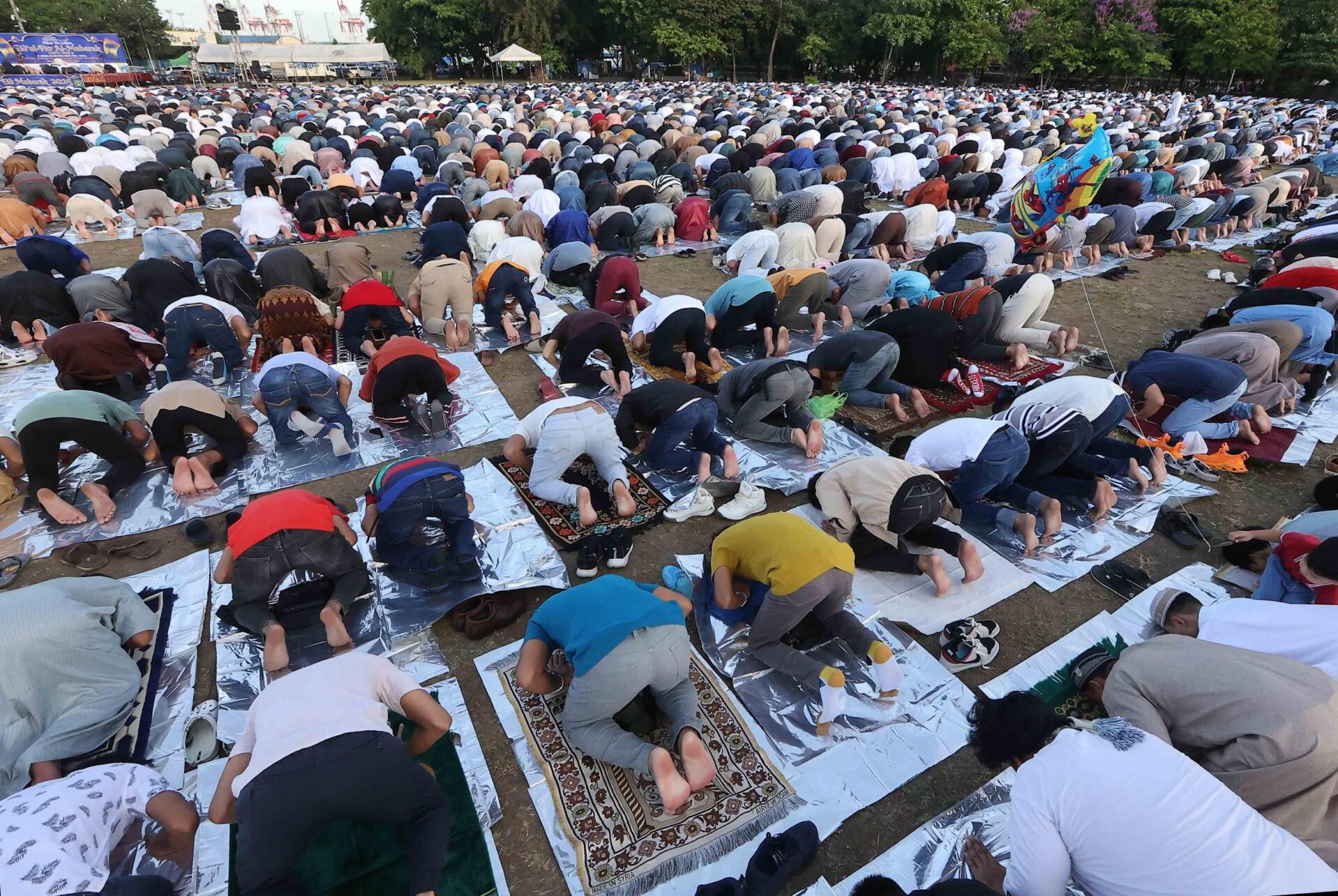
“We don’t have those kinds of voting blocs like other religious sects. In Islam, even in the Bangsamoro [Autonomous] Region in Muslim Mindanao (BARMM), you need to remember that we don’t base our votes from the order or dictation of a clergy or an imam,” Cayamodin said, who is an expert in the sociology and anthropology of political behavior.
The professor said a lot of Moros belong to the “spectatorial” level of political participation, voting in elections and joining casual political discussions. This second level of political participation is just behind the “apathetics” or those who abstain from any political process.
The highest level is the “gladiatorial” where people are more active in politics and engage in activities such as gathering signatures to protest a government official, lobbying for a cause before Congress or running for public office.
Insufficient numbers
Even if these academic concepts are discarded and focus solely on the numbers, the total population of Moros in the country is not enough to elect a senator, Cayamodin pointed out.
“The reason is very simple. We are a minority. To be a top 12 senator, you need more or less 15 million votes. So now, even if a Muslim runs for senator in this country, assuming you have the whole BARMM vote, that is roughly only three million votes,” he noted.
“So where will you get the 12 million votes? It is very, very, very impossible. I think it’s statistically impossible for a Muslim candidate for senator to win,” the professor said.
This is the exact problem Lidasan is facing in the May 12 polls – and she knows it.
“Ang laki-laki kasi ng iikutin mo. Buong Pilipinas at abroad. Kung wala akong makinarya katulad ng Makabayan – isang multi-sectoral organization – na tumutulong sa slate namin, talagang mahihirapan ako,” she admitted.
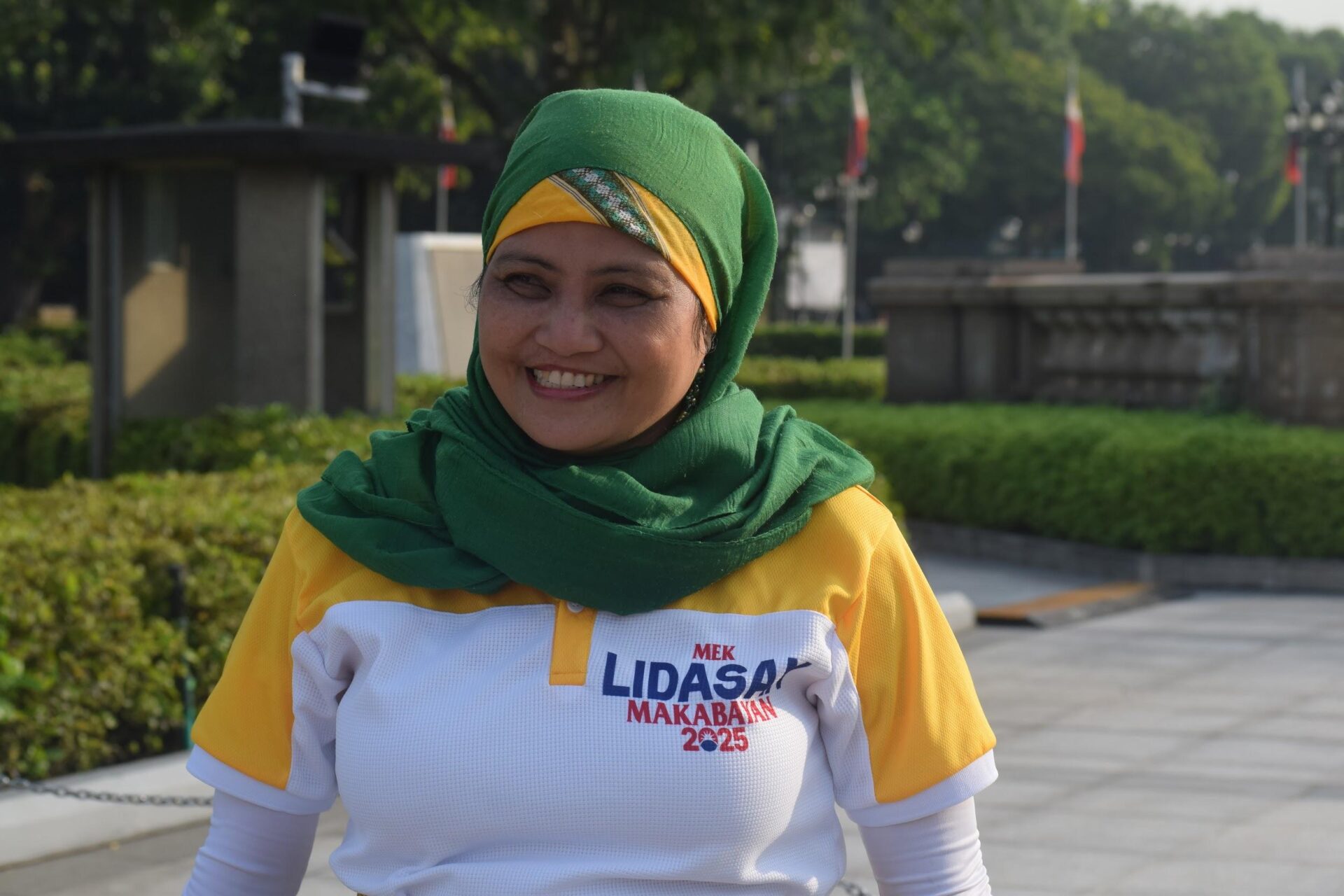
Even then, hopping from region to region is insufficient. A candidate’s face and name should be regularly seen and heard on every television channel, radio station and social media platform. This requires a big political machinery fueled by a huge amount of money, Lidasan said.
“‘Yun ‘yung talagang challenge na kinakaharap namin. Tapos may isyu pa na ‘yung constituents mo mismo ang hindi familiar sa inyo,” she added.
The lack of numbers is not the only problem in the upcoming polls. As the Commission on Elections has admitted, they expect a surge in cases of vote buying and abuse of state resources in the run-up to May 12.
While Cayamodin says it is impossible for a Muslim to win a Senate seat under the current system, he believes this can be fixed with an amendment to the 1987 Constitution.
He envisions a Senate that truly represents the entire country by allocating a number of seats for each region. Currently, the electoral system in the Senate is essentially a popularity contest where one simply needs to gather the most votes to win, the professor pointed out.
VERA Files reached out to the National Commission on Muslim Filipinos to inquire if plans are in place to strengthen Moro representation in the legislature. They have yet to respond as of this writing.
Lidasan remains optimistic despite the circumstances that seem so dire.
“Ang pinaka-importante sa amin is the opportunity to reach out at maisip ng mga taga-Bangsamoro na they have to stand, ‘no? Ayaw nating umabot sa [punto] na mawalan sila ng hope. Kaya talaga tinutulak namin na mayroong tatakbo,” she stressed.
